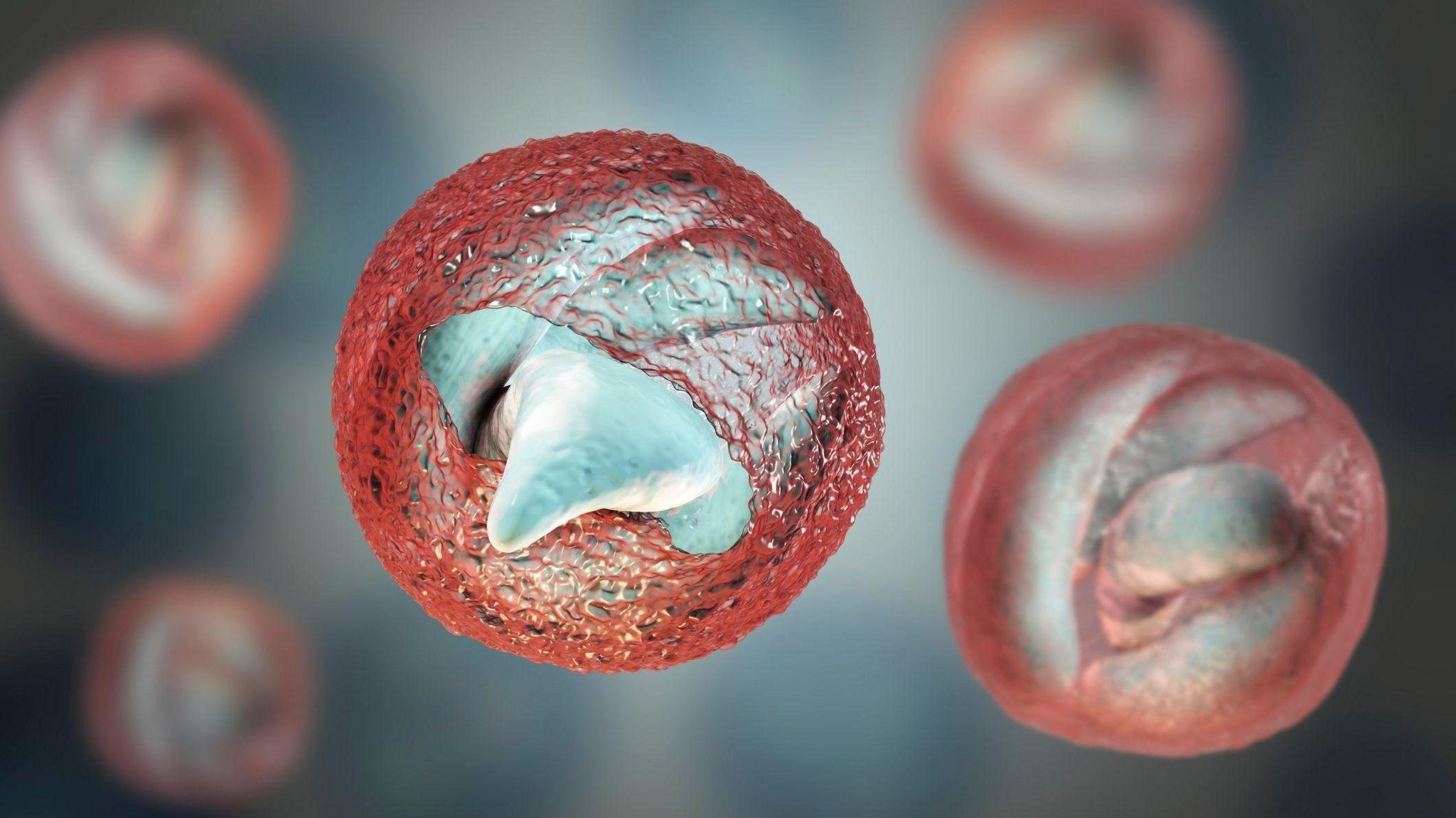Woman believes E. coli linked to autoimmune condition

Ciara Marsh, from Hailsham, says she is in hospital after a diagnosis with ulcerative colitis
- Published
A Hailsham woman believes she has developed ulcerative colitis as a result of being affected by E. coli.
It comes amid an outbreak of the bacteria, which has led to three food manufacturers recalling products over fears of possible contamination.
Ciara Marsh, 23, is currently in hospital, where she said she had been diagnosed with the long-term condition - a month after initially being hospitalised with E. coli.
Dr Sarah Pitt, a microbiologist at the University of Brighton, said it was a "possibility" that the bacteria could lead to ulcerative colitis.
"I did not expect it at all, I thought after a couple of weeks it would have passed," Ms Marsh told the BBC.
She said she was admitted to East Surrey Hospital on 15 May after suffering with abdominal pain, diarrhoea and "blood coming from places that it shouldn't".
She said stool and blood tests have confirmed she had been affected by E. coli.
The veterinary assistant was discharged on 23 May, but returned to A&E about a week ago after her symptoms worsened.
Ms Marsh said a biopsy had revealed she has ulcerative colitis, a long-term condition where the colon and rectum become inflamed.
According to the NHS, external, it is thought to be an autoimmune condition, while symptoms include recurring diarrhoea, as well as extreme tiredness.
"I feel very deflated," she said. "It's not ideal coming into hospital all the time - I've got so many bills to pay."
She added that the timing of the diagnosis was "very coincidental" and that she believed E. coli was "linked".

Ciara Marsh said she "didn't know" how the condition was going to progress
Dr Pitt said ulcerative colitis was an "inappropriate reaction" from the immune system.
“If you’ve had E. coli, you’ve had a lot of diarrhoea and nasty bacteria disrupting your good gut bacteria," she said.
"You can end up with a not particularly good environment in your gut, and then your immune system’s trying to deal with that… it goes a bit bananas.”
Dr Phyllis Chan, a GP from Hailsham, said that it was "not common" for E. coli to lead to the condition.
She added that it was "possible" the two were linked, but the bacteria was "not a causation".
"It can trigger an immune response," she said.
More than 200 people across the UK are known to have been affected by E. coli in recent weeks, as of data up to 11 June, external.
Tests have shown that the E. coli in this outbreak is called STEC 0145, which produces Shiga toxin, which can attack the lining of the gut.
Symptoms can include diarrhoea that can be bloody, stomach cramps, fever and vomiting.
Most people recover well, but some - such as young children or people with underlying health conditions - can become very unwell.
Follow BBC Sussex on Facebook, external, on X, external, and on Instagram, external. Send your story ideas to southeasttoday@bbc.co.uk, external or WhatsApp us on 08081 002250.
Related topics
- Published17 June 2024

- Published21 May 2024

- Published19 June 2024
